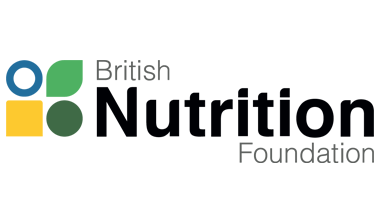Fat
British Nutrition Foundation
We aim to give people access to reliable science-based information to support anyone on their journey towards a healthy, sustainable diet. In this section you can read about fats and oils in the diet and how they our affect health.
Quick facts on fat
- Fats are an important part of a healthy, balanced diet. The provide essential fatty acids and carry the fat-soluble vitamins A, D, E and K.
- Fats are the richest source of calories in our diets, all types of fat provide 9kcal per gram, compared with carbohydrate and protein (both 4kcal per gram). High-fat foods contain a lot of calories.
- Fats can be divided into saturated and unsaturated types. Foods usually contain a mixture of the two, but we talk about the kind they contain most of, for example butter contains mostly saturated fat.
- Saturated fats are usually solid at room temperature because of their chemical structure. Foods high in saturated fats include fatty cuts of meat, full fat dairy products including cheese and cream, butter, coconut and palm oil, cakes, biscuits, pastries and chocolate.
- Unsaturated fats can be monounsaturated (such as in olive oils and nuts) or polyunsaturated (such as in vegetable oils and spreads). These are liquid at room temperature and mostly come from plant sources such as rapeseed, olives, nuts and seeds.
- Omega-3 fats are a type of polyunsaturated fat. The long chain omega 3s that seem to be particularly good for our health are mainly found in oily fish (like salmon and mackerel) and are also found in eggs and meat. We can also get shorter chain omega 3s from vegetable oils and some types of nuts.
- Although there is a lot of debate about the health effects of fats in the diet, overall, the totality of scientific evidence shows that replacing saturated with unsaturated fats in the diet can help reduce our blood cholesterol. High blood cholesterol is a risk factor for heart disease and stroke.
- We can reduce saturated fat in the diet by choosing lean cuts of meat and limiting foods like pastries, cakes and biscuits, butter, cream and coconut oil. You can replace saturated with unsaturated fats by swapping butter for vegetable or olive oils or spreads.
- Healthy dietary patterns such as the Mediterranean or Nordic diets are low in saturated fat but also higher in fibre, fruits and vegetables, wholegrains and unsaturated fats from nuts, oily fish and vegetable or olive oils. They also limit red and processed meat as well as refined carbohydrates and foods high in salt.



































































